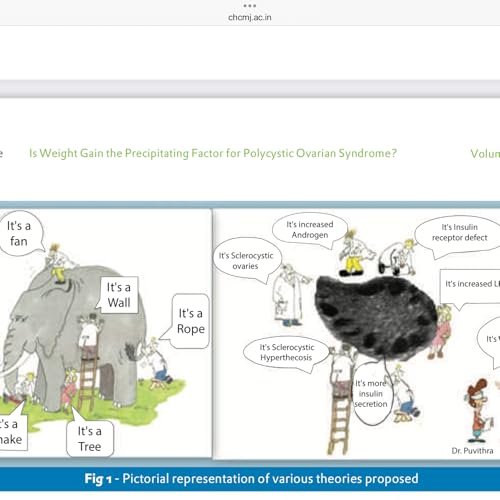
Diabesity Decodified - Is Food the root cause of Type 2 Diabetes Mellitus pandemic?
Échec de l'ajout au panier.
Échec de l'ajout à la liste d'envies.
Échec de la suppression de la liste d’envies.
Échec du suivi du balado
Ne plus suivre le balado a échoué
-
Narrateur(s):
-
Auteur(s):
-
Pandiyan Natarajan
À propos de cet audio
This is is not medical advice. This is food for thought. Please discuss with your doctor before making any change in your food and lifestyle.
The escalating global incidence of Type 2 Diabetes Mellitus (T2DM) over the past five decades directly correlates with the parallel rise in overweight and obesity, forming an intertwined epidemic termed "diabesity." This podcast argues that the primary driver of this crisis is the pervasive consumption of "inappropriate food," particularly refined carbohydrates and ultra-processed foods, which disrupt metabolic homeostasis and promote weight gain. We propose that "appropriate food"—defined as whole, fresh, local, plant-based, minimally processed, or unprocessed foods, consumed in appropriate amounts and at appropriate times, and complemented by age-specific exercise—constitutes the fundamental and most effective intervention for T2DM prevention, management, and even remission. This lifestyle-centric approach, supported by emerging insights into the gut microbiome and personalized monitoring via continuous glucose monitors, often renders long-term pharmacotherapy unnecessary and potentially harmful. We critically examine the conventional reliance on chronic drug therapy, highlighting its significant side effects and questionable long-term morbidity/mortality benefits, advocating instead for its judicious use primarily in acute medical emergencies. This podcast calls for a paradigm shift in T2DM management, prioritizing sustainable, food-based lifestyle interventions over a drug-centric model.
Disclaimer: This is an opinion podcast for educational purposes only and does not constitute medical advice.
Listeners should consult their healthcare providers before making any decisions about diagnosis or treatment.
-
 7 min
7 minÉchec de l'ajout au panier.
Veuillez réessayer plus tardÉchec de l'ajout à la liste d'envies.
Veuillez réessayer plus tardÉchec de la suppression de la liste d’envies.
Veuillez réessayer plus tardÉchec du suivi du balado
Ne plus suivre le balado a échoué
-
 6 min
6 minÉchec de l'ajout au panier.
Veuillez réessayer plus tardÉchec de l'ajout à la liste d'envies.
Veuillez réessayer plus tardÉchec de la suppression de la liste d’envies.
Veuillez réessayer plus tardÉchec du suivi du balado
Ne plus suivre le balado a échoué


